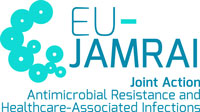Step by step guide for the implementation and assessment of Bootcamps
Bootcamps, in the context of AMR/AMS education and professional development, are intensive, short-term, immersive training programs meticulously designed to rapidly equip participants with specific foundational knowledge, practical skills, and critical competencies in a focused area within a compressed timeframe (typically ranging from a single day to a week). They are characterized by their high-intensity, practical focus, often employing a blend of educational modalities including hands-on skill development stations, simulation-based training, interactive case studies, collaborative problem-solving, and Peer-to-peer Learning. Originally derived from military training, the bootcamp model has been widely adapted for various professional fields, including healthcare and medical education, to effectively address specific competency gaps, prepare individuals for new or challenging roles (e.g., new antimicrobial stewards, residents starting infectious diseases rotations), or to rapidly disseminate new critical AMR/AMS strategies.

Planning a Bootcamps
A bootcamp focused on antimicrobial resistance stewardship could include the following steps:
- Rigorous Needs Assessment and Clearly Defined Objectives: Conduct a thorough needs assessment to identify specific AMR/AMS knowledge, skills, or performance gaps that the bootcamp will address for a well-defined target audience. Establish clear, measurable, and achievable learning objectives that guide curriculum design and evaluation.
- Intensive and Multi-Modal Curriculum Design: Develop a highly structured, intensive curriculum that strategically blends various educational methods to cater to different learning styles and achieve the defined objectives within the short timeframe. This often includes:
- Focused Didactics: Concise lectures to deliver essential AMR/AMS theoretical knowledge.
- Hands-on Skill Stations: Practical sessions for developing specific skills (e.g., using AMR diagnostic tools, practicing communication techniques for AMS interventions, implementing IPC measures).
- Simulation-Based Training: Use of simulations for practicing clinical decision-making in AMR scenarios (e.g., managing sepsis with MDROs, responding to an AMR outbreak), procedural skills, or teamwork. (Blackmore et al., 2014, and Kerins et al., 2021, emphasize simulation in medical bootcamps).
- Interactive Case Studies and Problem-Based Learning: Engaging participants with real-world or realistic AMR/AMS cases to foster critical thinking and collaborative problem-solving.
- Role-Playing and Communication Practice: For developing communication skills essential for AMS (e.g., with prescribers, patients, or interprofessional teams).
- Collaborative Group Work and Peer Learning: Incorporating activities that require teamwork and allow participants to learn from each other’s experiences and perspectives.
- Logistical Planning and Resource Allocation: Meticulously plan all logistical aspects, including venue or virtual platform selection, scheduling, necessary equipment (simulators, AV, lab supplies if applicable), development or procurement of training materials, and recruitment of experienced faculty/facilitators with expertise in both AMR/AMS and active learning methodologies.
- Pre-Bootcamp Preparation for Participants: Often involves providing participants with pre-reading materials, online modules, or self-assessment tools to ensure a baseline level of knowledge and maximize the value of the intensive in-person or synchronous online time for practical application and interaction.
- High-Intensity, Engaging Training Delivery: Deliver the bootcamp with a focus on high participant engagement, active learning, and practical application. Facilitators should be skilled in managing intensive learning environments and providing constructive, timely feedback.
- Action Planning and Post-Bootcamp Follow-up/Reinforcement: Ideally, include a component where participants develop specific action plans for applying their newly acquired AMR/AMS knowledge and skills in their respective workplaces. Consider post-bootcamp reinforcement activities, such as access to online resources, follow-up mentoring, or establishment of a community of practice to support the transfer of training.

Defining roles in a Bootcamps
Facilitator’s role (Lead Instructors/Content Experts/Simulation Specialists): Design a comprehensive and engaging curriculum aligned with learning objectives. Deliver didactic content concisely and effectively. Expertly guide hands-on activities, simulations, and case discussions. Provide specific, constructive, and timely feedback to participants. Foster a challenging yet supportive and collaborative learning environment. Manage session logistics and time effectively. Ensure all necessary resources and equipment are functional.
Participant’s role (Learner): Commit to full and active engagement throughout the intensive program. Complete any required pre-bootcamp preparation. Be willing to actively participate in all learning activities, including hands-on practice, simulations, and group discussions. Be receptive to feedback and prepared to step outside their comfort zone. Collaborate effectively with peers. Develop concrete plans for applying learned AMR/AMS skills and knowledge in their professional practice.

Assessing a Bootcamps
Methods
- Pre- and Post-Bootcamp Assessments: Utilize validated questionnaires or tests to measure changes in AMR/AMS knowledge, skills (e.g., using Objective Structured Clinical Examinations – OSCEs, or performance in standardized simulations), and self-reported confidence levels. (Blackmore et al., 2014, in their meta-analysis, found bootcamps effective in improving these domains; Jones et al., 2020, and Siette et al., 2024, used pre-post comparisons for different types of bootcamps).
- Direct Observation and Performance in Activities: Direct observation and structured assessment of skill performance during hands-on sessions, simulation scenarios (e.g., using validated checklists or rubrics), or case presentations.
- Evaluation of Projects or Action Plans: Assessment of the quality, feasibility, and appropriateness of any action plans, project proposals (e.g., for a local AMS initiative), or other tangible outputs developed by participants during the bootcamp.
- Participant Feedback and Satisfaction: Collecting detailed feedback from participants via surveys or focus groups on the bootcamp’s content, structure, delivery, relevance, learning environment, and overall satisfaction.
- Longer-Term Follow-up (where feasible): Assessing skill retention, transfer of training to the workplace, and impact on AMR/AMS-related practices or outcomes over time.
Tools
Validated knowledge questionnaires (MCQs, short answer questions). Objective Structured Clinical Examination (OSCE) checklists or global rating scales. Simulation performance recording systems and debriefing tools. Rubrics for evaluating projects or action plans. Standardized confidence rating scales. Participant satisfaction surveys and qualitative feedback instruments (e.g., interview guides for post-bootcamp follow-up).

Suggested Bootcamps prototype
Target Audience: Prescribers (Doctors, Veterinarians, Dentists), Health Managers, Pharmacists/Dispensers, Lead Nurses, Public Health Professionals identified or aspiring to lead or significantly contribute to AMR/AMS initiatives within their institutions or regions.
Learning Objectives:
- Enhance comprehensive knowledge of AMR mechanisms, One Health implications, and advanced principles of antimicrobial stewardship.
- Develop practical skills in designing, implementing, and evaluating effective AMS program components (e.g., guideline development, audit and feedback, formulary management, education).
- Strengthen leadership, communication, and change management skills necessary to champion AMS initiatives and overcome implementation barriers.
- Foster interprofessional collaboration and networking among current and future AMR/AMS leaders.
- Empower participants to develop and initiate a tangible AMS quality improvement project within their own setting.
Curriculum/Activities (example 3 to 5-day intensive program, potentially with pre-online modules):
- Module 1: The AMR Challenge and Global/Local Stewardship Context: Focused didactics on advanced AMR epidemiology, One Health interconnections, national/international action plans, and the core elements of successful AMS programs.
- Module 2: Designing Effective AMS Interventions: Interactive workshops on developing local AMR guidelines, conducting AMS audits, providing effective prescriber feedback, and using data for improvement. Includes hands-on practice with data interpretation and tool utilization.
- Module 3: Simulation – Managing Complex AMR Scenarios: High-fidelity simulation exercises (e.g., managing a hospital outbreak of an MDRO, responding to a community-wide increase in a specific resistant infection, implementing a new restrictive antibiotic policy in a challenging environment). It may include structured debriefing.
- Module 4: Leadership, Communication and Change Management for AMS: Sessions on leadership styles for AMS, effective interprofessional communication strategies, stakeholder engagement, conflict resolution, and principles of change management to drive AMS adoption. It includes role-playing difficult conversations.
- Module 5: AMS Project Development and Action Planning: Participants work individually or in small (interprofessional) teams, with mentorship from faculty, to develop a detailed action plan or proposal for a specific AMS quality improvement project they can implement in their home institution/region upon return. This includes defining objectives, methods, timelines, and evaluation metrics.
- Expert Panels and Networking: Opportunities for Q&A with established AMR/AMS leaders and networking among participants.
Evaluation of the Prototype’s Effectiveness:
- Significant improvement in pre- versus post-bootcamp knowledge scores (e.g., on advanced AMS principles, guideline development) and self-reported confidence in leading/implementing AMS initiatives.
- High-quality, feasible AMS action plans or project proposals developed by participants, assessed using a standardized rubric.
- Demonstrated proficiency in skills practiced during simulations or hands-on workshops (e.g., communication, data interpretation), assessed via observation or OSCE-style stations.
- High levels of participant satisfaction with the bootcamp’s content, interactivity, faculty expertise, and practical relevance.
- Six-month to one-year follow-up with participants to assess the extent of implementation of their action plans/projects and any reported impacts on local AMS practices or AMR-related outcomes (e.g., changes in antibiotic consumption, guideline adherence).
References
- Bender, B. G., Simmons, B., Konkoly, N., & Liu, A. H. (2021). The Asthma Toolkit Bootcamp to Improve Rural Primary Care for Pediatric Asthma. Journal of Allergy and Clinical Immunology: In Practice, 9(8), 3091-3097. e1. 10.1016/j.jaip.2021.03.058
- Berridge, C., Jain, S., & Biyani, C. S. (2020). Defining boot camp: a supporting literature review. SE Asian Jnl Med Educ, 13(2), 3. 10.4038/seajme.v13i2.204
- Biedermann, S., & Fenton, S. H. (2012). Bootcamp and beyond: A research journey. Journal of the American Health Information Management Association, 83(8), 32-35.
- Boillat, T., Tuffnell, C., Rivas, H., Aloul, F., & Montana, C. (2020, February). Design4Health Bootcamp: A design thinking approach to improve the 21 st century skills of health, engineering and design students. In 2020 Advances in Science and Engineering Technology International Conferences (ASET) (pp. 1-5). IEEE. 10.1109/ASET48392.2020.9118202
- De Winter, L., & Gutman, L. M. (2022). Facilitators and barriers to fitness bootcamp participation using the Behaviour Change Wheel. Health Education Journal, 81(1), 3-16. 10.1177/00178969211044180
- Goldfarb, I. T., & Smith, N. A. (2019). QI Bootcamp: feasibility and acceptability of a novel approach to training residents in process improvement. American Journal of Obstetrics & Gynecology, 221(6), 656-658.10.1016/j.ajog.2019.07.004
- Hoffner-Heinike, A., Iwamoto, S. J., Saxon, D. R., Cogdall, N. A., Davies, R. D., Lee, R. S., Chiappone, A., Thomas, J. F., & Rothman, M. S. (2024). ECHO “Bootcamp”: An Innovative Training Model to Onboard Providers in the Care of Gender Diverse Patients. Telemedicine and e-Health, 30(2), 430-437. 10.1089/tmj.2023.0023
- Jones, C., Pike, A., & Brémault-Phillips, S. (2019). Brain Bootcamp: pre–post comparison findings of an integrated behavioural health intervention for military members with reduced executive cognitive functioning. Journal of Military, Veteran and Family Health, 5(1), 131-140. 10.3138/JMVFH.2018-0005
- Kerins, J., Smith, S. E., Stirling, S. A., Wakeling, J., & Tallentire, V. R. (2021). Transfer of training from an internal medicine boot camp to the workplace: enhancing and hindering factors. BMC Medical Education, 21, 1-12. 10.1186/s12909-021-02911-5
- Kreshak, A. A., Neath, S. X., Tolia, V. M., Castillo, E. M., & Chan, T. C. (2018). A multidisciplinary bootcamp as an educational launch to a geriatric emergency department. The Journal of Emergency Medicine, 54(6), 855-860. 10.1016/j.jemermed.2018.02.007
- Labadie, R. F., Wright, C., Eavey, R. D., & Sinard, R. J. (2023). Resident Research Bootcamp: Preparatory Course for Required ACGME Research in O-HNS. Ear, Nose & Throat Journal, 102(8), 494-497. 10.1177/01455613211007348
- Mastel-Smith, B., Kimzey, M., Garner, J., Shoair, O. A., Stocks, E., & Wallace, T. (2020). Dementia care boot camp: interprofessional education for healthcare students. Journal of Interprofessional Care, 34(6), 799-811. 10.1080/13561820.2019.1696287
- Ramakrishnan, D., Ilagan-Ying, Y. C., Bollinger, B., & Dunne, D. (2024). Teaching Sideways: Implementing a Peer-Led Medical Student Orientation Bootcamp and Survival Guide for Internal Medicine Clerkship. Southern Medical Journal, 117(1), 1-6. 10.14423/SMJ.0000000000001638
- Ramsey, E. C. (2006). Multimedia Bootcamp: A health sciences library provides basic training to promote faculty technology integration. Biomedical Digital Libraries, 3, 3. https://doi.org/10.1186/1742-5581-3-3
- Rao, R., Cruz, V., Peng, Y., Harker-Murray, A., Haley, B. B., Zhao, H., Xie, X. J., & Euhus, D. (2012). Bootcamp during neoadjuvant chemotherapy for breast cancer: a randomized pilot trial. Breast cancer : basic and clinical research, 6, 39–46. https://doi.org/10.4137/BCBCR.S9221
- Siette, J., Dodds, L., Deckers, K., Köhler, S., Heger, I., Strutt, P., Johnco, C., Wuthrich, V., & Armitage, C. J. (2024). A pilot study of BRAIN BOOTCAMP, a low-intensity intervention on Diet, Exercise, Cognitive Activity, and Social Interaction to Improve Older Adults’ Dementia Risk Scores. The Journal of Prevention of Alzheimer’s Disease, 11(5), 1500-1512. 10.14283/jpad.2024.104
- Succi, M. D., Cheng, D., Andriole, K. P., Fintelmann, F. J., Flores, E. J., Zhang, H., Gee, M. S., Coburn, C. M., & Brink, J. A. (2023). Integrating a healthcare innovation bootcamp into an international medical conference to democratize innovation learning. Nature Biotechnology, 41(4), 579–581. https://doi.org/10.1038/s41587-023-01738-3
